Student Nurse Explores Questions About Maternal Health in Poland
Jennifer Porter, Student Nurse from the University of South Carolina and Nurses International volunteer writes about her experience as part of the Nurses International network. Read her blog below.
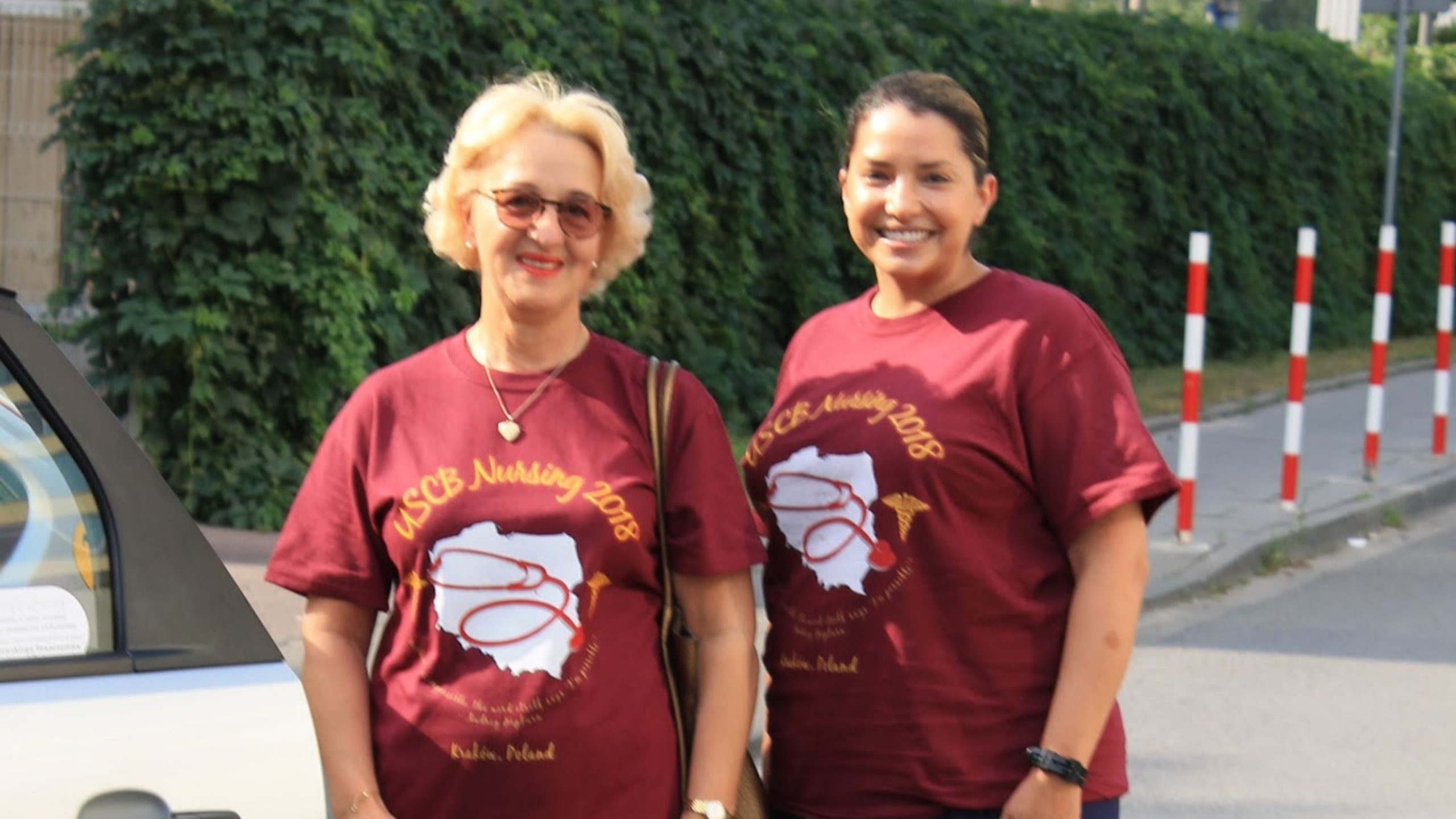
Cultural competency is the ability to understand the needs of a culture and take measures to deliver effective healthcare to patients using social, linguistic, and cultural supports. It is important to make efforts to understand the needs of differences in other cultures, however as nurses we also need to make efforts not only read about different cultural needs of patients, but also submerge ourselves in professional cultural opportunities to learn and grow our practice and skills in general.
In nursing school, we are regularly reminded to be mindful of the cultural needs of our patients, we have translators in hospitals, cultural brokers, and social workers to help in communicating effectively with their needs. Something that really interested me in what we as nurses can learn from other nurses globally. So often we read about studies in which nursing in certain countries are doing better or struggling and it a professional responsibility to find out “why”.
In reading these articles I came across a World Health Organization article discussing the maternal mortality rates between different countries. The United States has a ratio of 12-14 women per 100,000 live births dying from preventable causes related to pregnancy and childbirth, where other countries had significantly less. One of these countries was Poland with a ratio of only 2-4 per every 100,000 live births. I was very interested by this fact and wanted to understand and learn what are other counties such as Poland doing differently that would improve the way we practice nursing in our own counties.
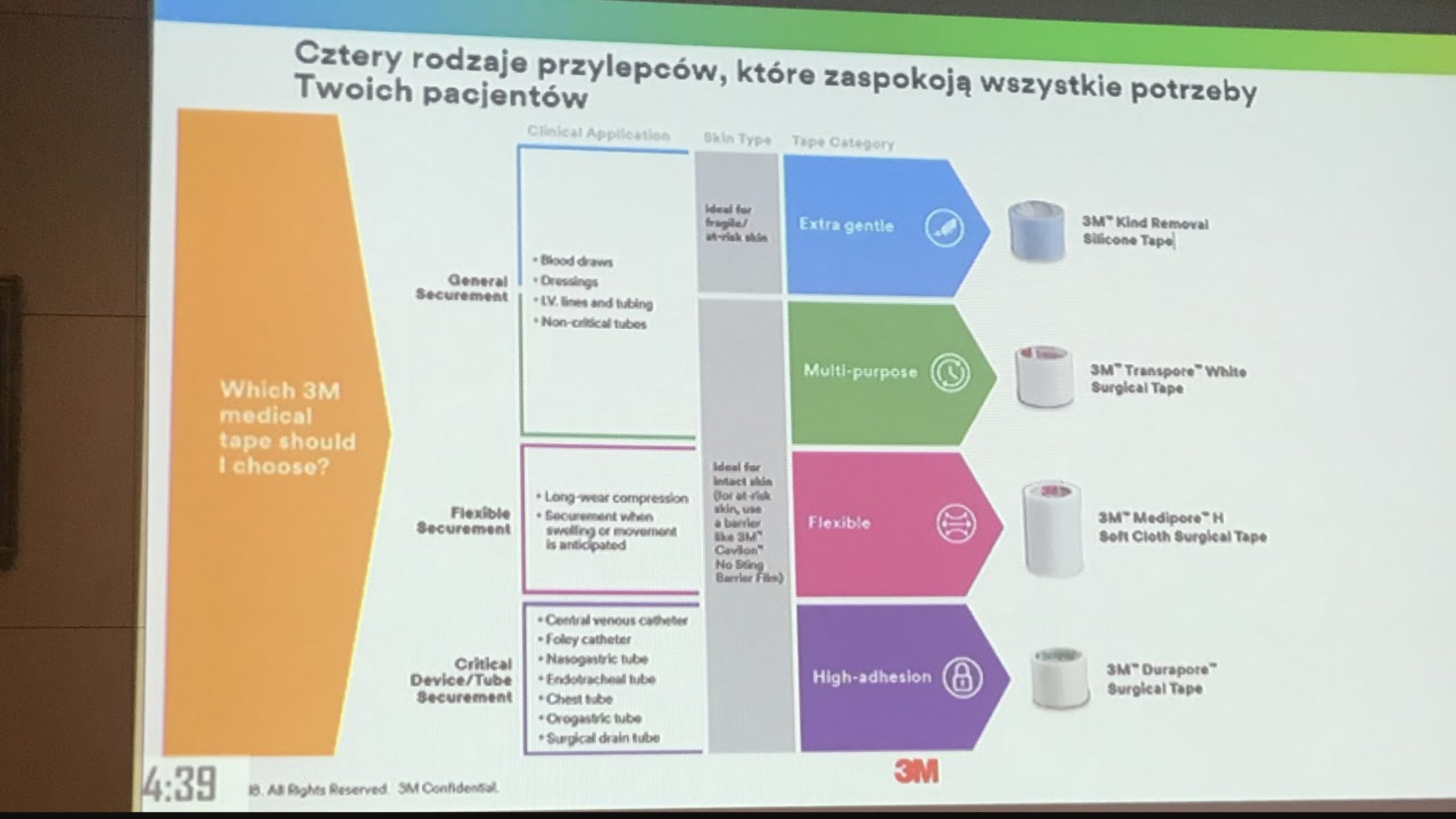
“Why Poland?” I understand it is a little random of locations but this summer I was planning a trip to see my husband who is in the military and stationed in Poland for a month and after discussion with the university’s nursing department head, I was struck with the idea that I could really find an exciting opportunity to observe nursing practices during my travels. Our department and I discussed an independent study course in which I could complete a summer course and complete assignments related to my experiences and I could apply them to nursing. I was inspired by the history and cultural submersion to make the effort to go forth without inhibition and embrace as much as I could from my monthlong journey.
After contacting a few international organizations, I received an email from a nurse who had received my email of interest from Nurses International, Maria Sowa, (within 6 hours of my initial email). I immediately called Maria after school and we discussed what I was looking to observe as well at dates in which I would be able to meet with her. Due to tight schedules and traveling to Krakow, where Maria is located, we scheduled a weekend in which we could meet, and I can visit the local hospitals and visit a NICU and possibly ICU. I felt and overwhelming rush of stepping outside of my comfort zone. I have traveled many times, especially in the military, but only a handful of times where I have gotten to just be fully submerged myself in the culture. By far this is the best kind of travel, as one can see the world for what it is and not through a filter.
With passports in hand, my 7-month-old son and I traveled to Poland. My husband had scheduled some amazing historical trips which we both wanted to see but also gave me historical background on the medical and nursing evolution of Poland. We spent two and a half weeks and traveled to Krakow, Warsaw, Auschwitz, and even Berlin via trains and automobiles. I allowed myself to see through the eyes of the local people and imagine what life had been like through the Nazi and Communist regimes. The people of Poland are truly resilient and are thriving while maintaining their traditions. I was very impressed by the generosity and kindness everywhere went, it was painfully obvious with my very poor Polish that we were foreigners, and the people were nothing short of jovial and welcoming to us, helping us anytime we had questions.
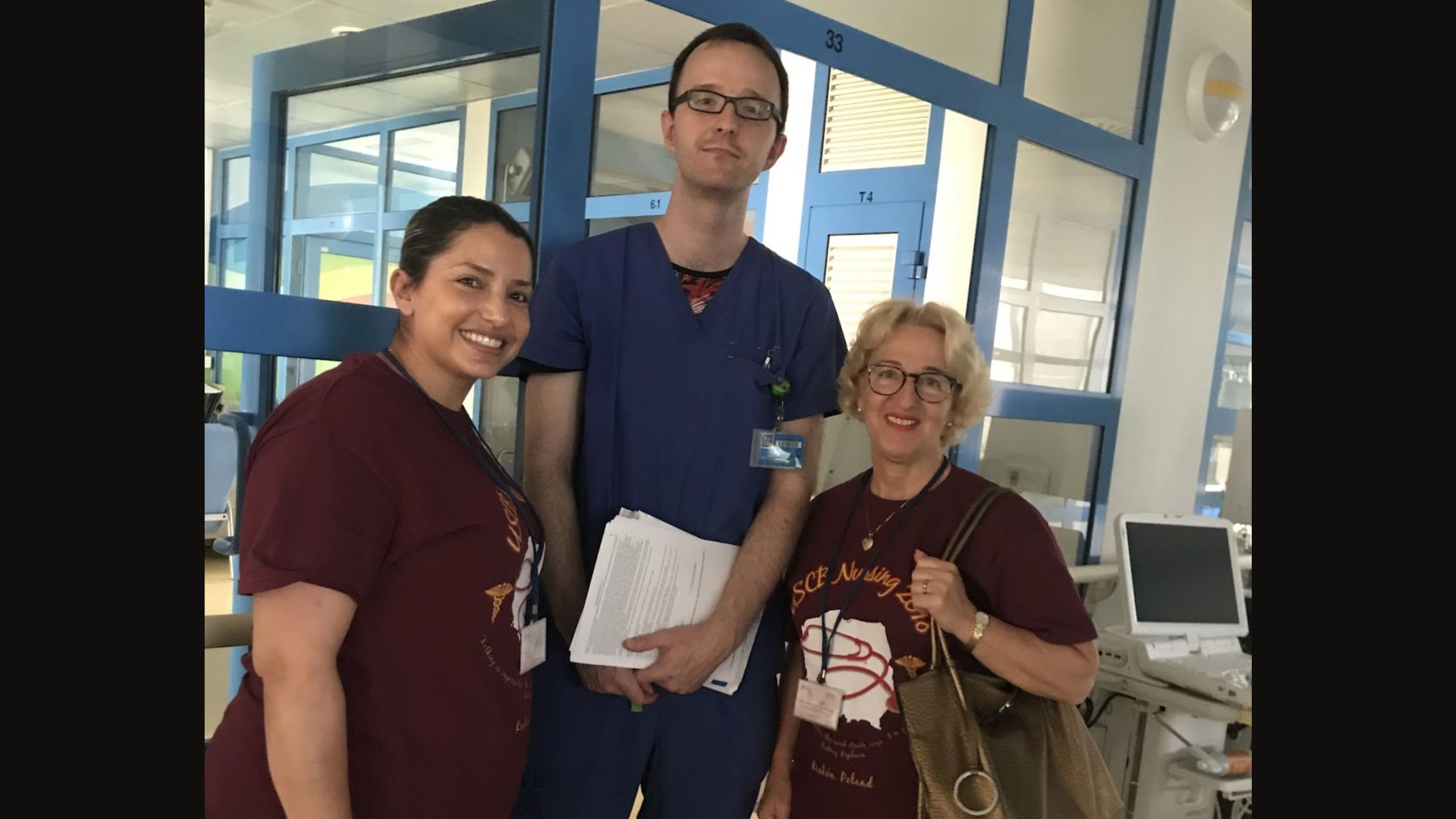
After all this local traveling, the excitement in me was building to finally meet with Maria and see what nursing looks like in Poland. I had experienced the history, people, and community of Poland, I was ready to witness what nursing in Poland looks like today. As my husband watched our son, I set out alone on a 11-hour train ride to Krakow from the small town of Slupsk. For the month leading up to my clinical observation, Maria ensured we coordinated what my day would look like as I was only going to be able to stay for one day and she wanted to make sure I was able to get a full experiences while I was there.
As I arrived at Maria’s home, yes, her home, she embraced me and welcomed me with a home cooked meal. In today’s world it is so rare to come across such kindness it really touched how Maria opened not only her professional world to me but welcomed me into her home as well. We discussed for hours the differences in nursing around the world. She has 40 years of nursing experience between Poland and Canada and was forthcoming with her experiences globally. As we discussed my motivation to see how nursing looks like in Poland, I shared with her that I feel it is important to step outside of one’s comfort zone to really open oneself to ideas and practices that can help one grow professionally. I brought up the article I read about the WHO regarding the maternal mortality rates being significantly lower in Poland versus the US and continued that if this article is any indication of how Polish nursing practices are more advanced. At this point I was excited to see what I can learn and take back with me in my professional tool box to better help my patients.
Maria had planned a full day for us as I was only going to be able to stay in Krakow for the weekend and had to return to Slupsk Sunday. For the first half of the day she had arranged for us to attend the Second Annual Conference for Neonatological Nursing addressing challenges for the child and nurses at the University Children’s Hospital of Krakow and the second half of the day we would be touring and observing the NICU at the same hospital and then visit an ICU in another hospital closer to Old Town Krakow treating internal diseases.
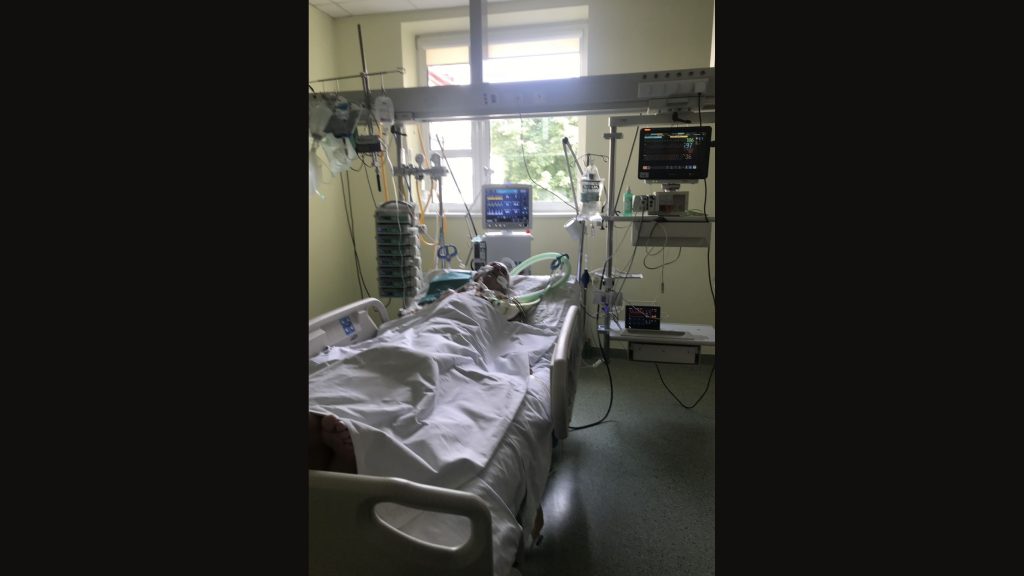
The Conference was nothing short of excellent. When I first arrived, I felt a little awkward as I do not understand Polish and know enough to be polite, but Maria made a point to introduce me to everyone, her friends, colleagues, and speakers. I had expected to only understand a few words of the conference but that was not the case at all. Medical language is very similar across the globe no matter where you are. I was able to enjoy informative presentations on how Neonatal Nurses are assessing neonates at birth and improving the need for intense medical interventions with simple nursing interventions using stimulation and O2 at birth, aseptic techniques to prevent nosocomial infections, utilizing proper equipment to prevent MARSI (Medical Adhesive Skin Related Injuries), proper ways to asses infants are receiving proper nutrition, and identifying and assessing the level of stress amongst medical professionals (with focus on shift workers).
Not only was the conference informative, but the speakers were excellent providing educational moments during the conference answering questions from the audience and afterwards during breaks in more one-to-one settings. I was thoroughly amazed with the information presented at the conference. Maria was able to translate any questions I had during the presentations and fill in the gaps for me. During the breaks I was able to speak with some of the presenters (which spoke English) and ask any questions I had about the presentations and to clarify how to go about some of the interventions presented. As we were leaving Maria informed me that they were very excited by my attendance that I had been invited back for next years conference. If I am in the Europe, I will definitely make the effort to attend as I did learn some nursing interventions that I could take back with me regarding neonatal care. These are the kinds of learning moments that nurses can share with each other and why is it important to take traveling opportunities in other countries when possible.
After the conference joined one of Maria’s colleagues and went to the NICU in the hospital. I had recently done my pediatric clinical rotation through my university and had been in the NICU as well as personal experience with my own son being in a NICU at birth and was excited to see the similarities and differences. My initial response is that I was surprised that the nurses had better equipment and resources available to them, there was no Pyxis, there was plenty of room and the neonates were not all crammed into a single location, and they had the supplies they needed. The way the NICU was prepared was better and more efficient to care for the babies and families allowing for more skin to skin interaction and any necessary emergent interventions. Regarding interventions, the babies also seemed to require less medical interventions in general. I saw a 23-week-old neonate that was not on a ventilator and thriving in her warmer. I was impressed. After speaking with the nurses on the unit I did discover that they are also very understaffed and the average ratio of nurse to neonate is 1:3 or 1:4 depending on the schedule. These nurses are remarkable, they had done with so little for so long, they now have access to better technology and are practically unstoppable. My only regret is that this was an observation and not an actual clinical experience because I would love to experience a clinical in this NICU.
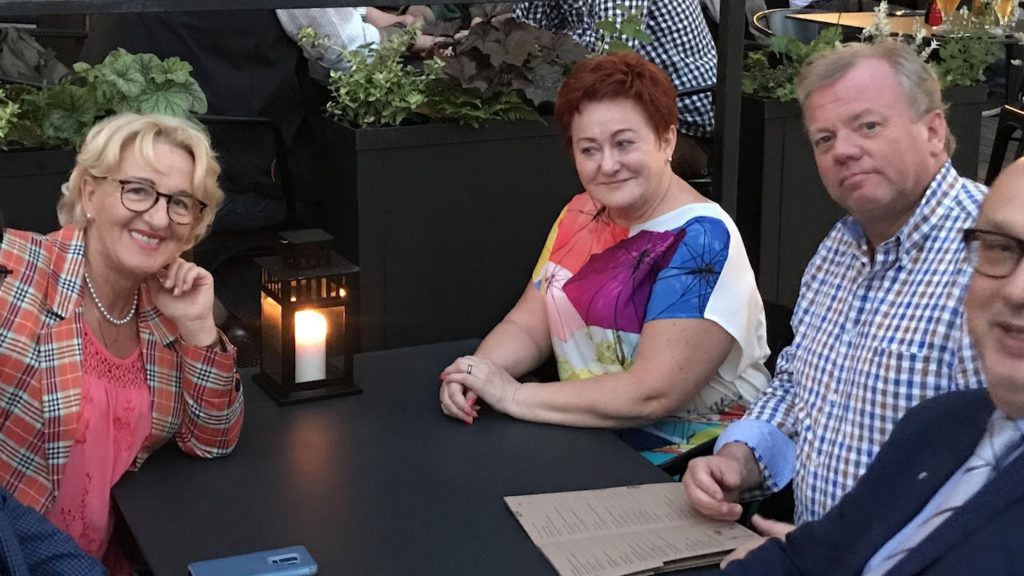
Maria and I then traveled to another hospital specializing in internal diseases closer to Old Town Krakow which is significantly smaller. The nursing staff there was so welcoming and showed me around the ICU. The ICU itself was very small since it is a smaller hospital and there are only 8 beds on the unit. My initial thought was I wasn’t sure if we were in the ICU or in a palliative care unit as all the patients seemed receiving comfort measure and were very fragile. The nurse conducting our tour informed me it was because of the demographics of the area and time of year. In the summer they tend to see more elderly suffering form cardiac conditions related to heat stress, and very often all they can do is provide palliative care until they pass away or improve. The nurses here are also understaffed and have a ratio of 1:2 during the day and those ratios can change during shifts. Again, the equipment and resources they had seemed better then what I have seen at smaller hospitals in the US and the nurses utilized all tools available to their advantage.
After leaving the last hospital I began to reflect on what I had experienced that day. The thought that kept appearing was “it’s important”, it is important to experience nursing in other cultures discuss strengths and struggles to improve our practices. I was just impressed by the small teams of nurses I had seen, who had learned to care for patients in any circumstance and have become so effective and therapeutic to their patients. The communist influence is still very strong in the mentality of the people here so efficiency and utilizing all the tools and skills they have, reducing wasted efforts is of the utmost importance. I thought that there is something to be learned from that because so many times we see nurses and student nurses running around like maniacs while and instructor or colleague stand back and watch rather than teaching and showing how to best use their energy and care for patients. These nurses work cohesively to reduce wasted efforts and treat as many patients as possible. They are superheroes.
The next day I set out on my journey back home thanking Maria for her hospitality and providing me with the invaluable experience I had while in Krakow. On my 11 hours train ride home, I reflected again on the experience, what I learned, and what I can take back with me and use as I grow as a nurse. I learned that being efficient and effective are two very difference thing but go hand in hand and when they combine they create a symphony of excellent patient care. I can take back the new skills and techniques I could put in my professional tool box from the conference we had attended. Finally, I expect to take back that it is important. It is important to learn form other in our field, travel as far as possible and often as possible and embrace all teachable moments presented to us.
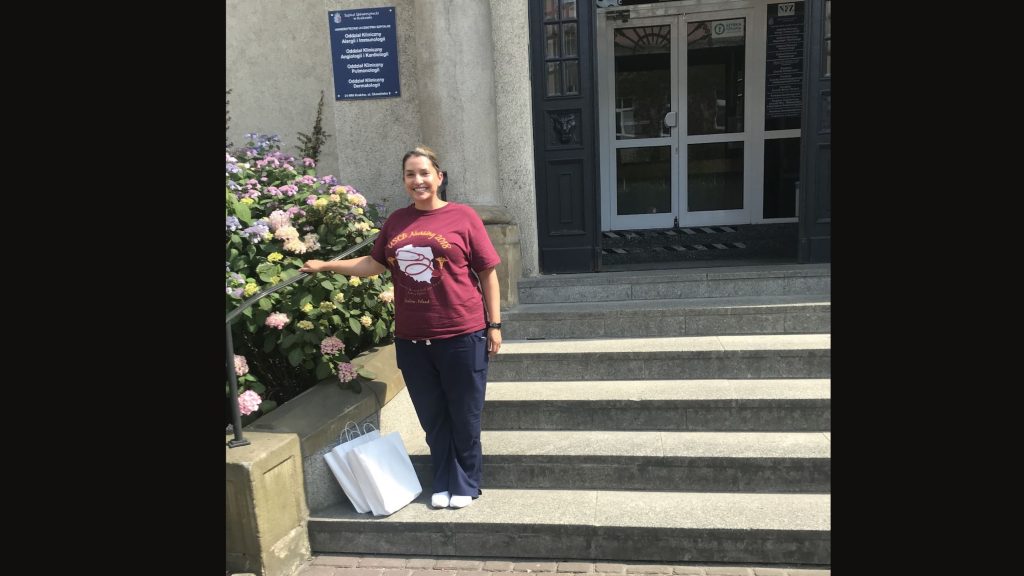
I leave Poland in another week after being here for a month, and it has been an incredible journey of family time, historical exploration, professional growth, and personal growth. My advice to nursing students or even nurses who have been in the profession for years, is to never stop learning. Seek out those unique experiences, look around those unusual places and step out of your comfort zones. By immersing yourself and taking in these unique opportunities and exchanging thoughts and experiences with our fellow nurses globally only helps to grow our own professional practices.
Jennifer Porter
Author
Share this post
Nurses International is a non-profit entirely focused on helping nurses obtain the education and the support they need to make a difference in developing nations worldwide.
We connect colleges and institutions with experts who can take their nursing programs to the next level. We help establish new nursing programs where they’re needed most. And we eliminate the barriers that stand between students and education.
QUICK LINKS
CONTACT US
FOLLOW US
EIN: 46-4502500